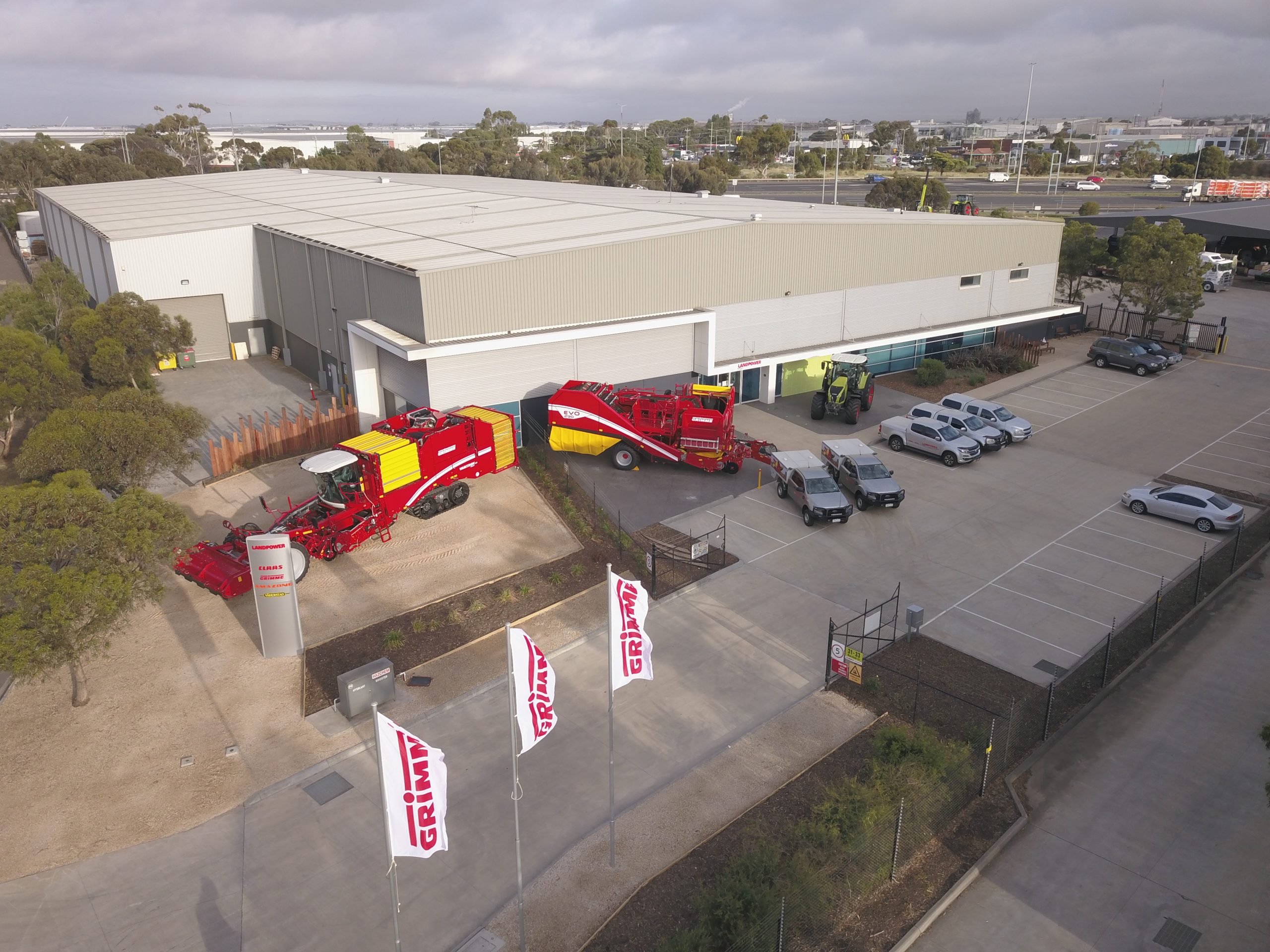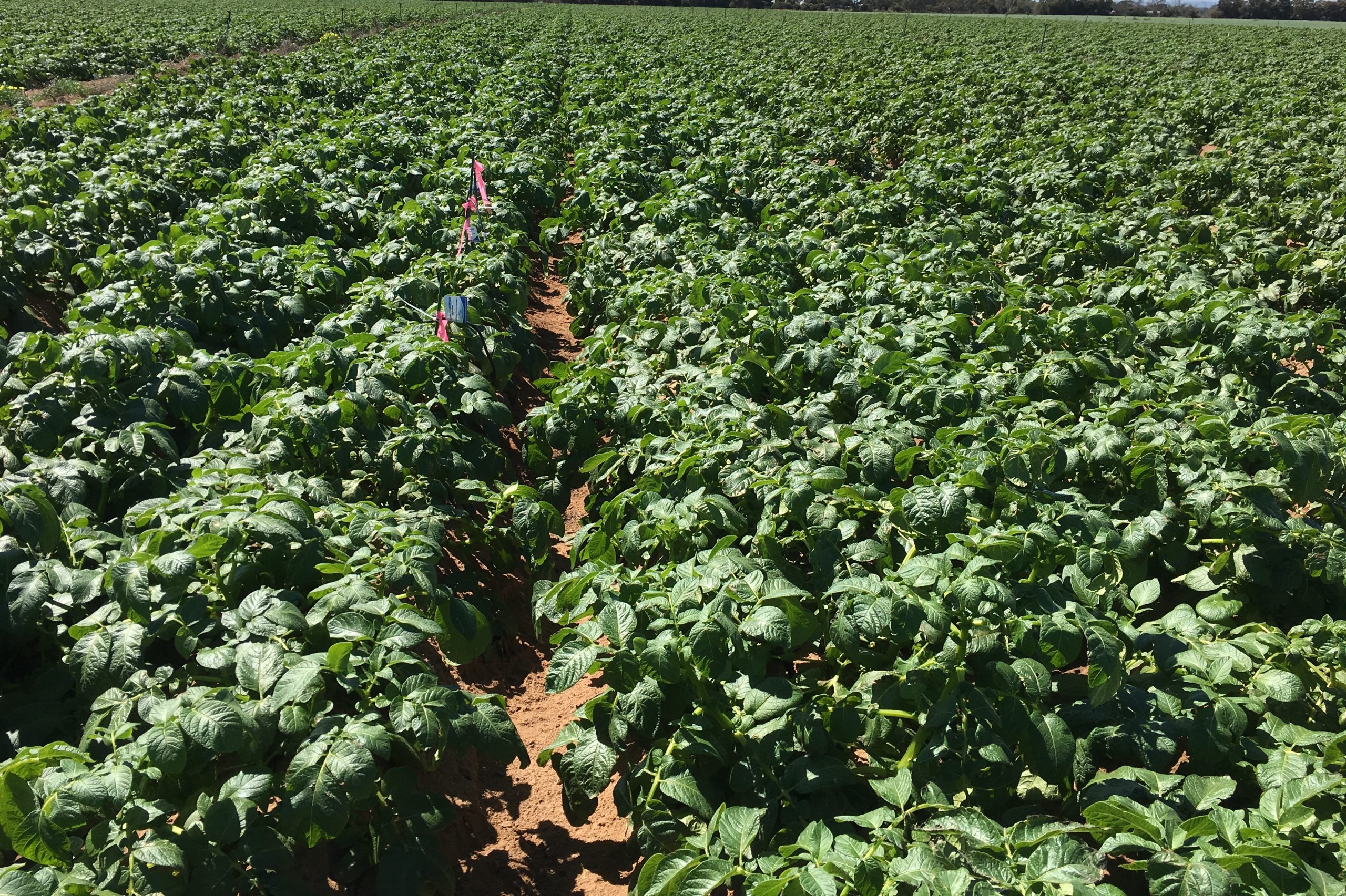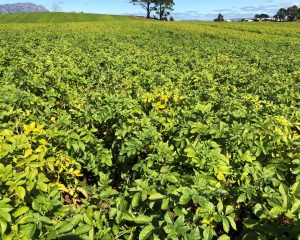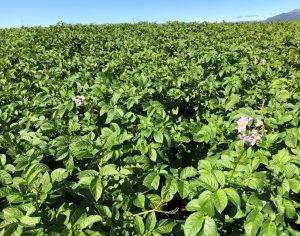
Relationships key to potato crop protection
4 October 2021
New vegetable harvesters for Aussie potato growers
4 October 2021Following a study on groundwater salinity, an investigation into soil crop health has been undertaken in Tasmania with early trials delivering promising results. Serve-Ag Technical Agronomist Julie Finnigan reports on the findings.
From 2016-2020, Serve-Ag was involved in Impact of groundwater quality on the management of centre-pivot-grown potato crops (PT16001), a strategic levy investment under the Hort Innovation Potato – Fresh and Potato – Processing Funds.
While completing this investment – which assessed groundwater quality in areas of potato production – Serve-Ag investigated the health of the soil that crops were growing in, with trials of EndoPrime® delivering promising results.
This prompted Serve-Ag Technical Agronomist Julie Finnigan, who regularly undertakes trials on a range of products across a variety of crops to find solutions for growers, to commence a series of trials for herself using EndoPrime, a product from Sumitomo Chemical Australia.
The product contains arbuscular mycorrhizal fungi, which is beneficial fungi that naturally exist in soils colonising the root systems of plants to form a symbiotic relationship. The four high performing species contained in the product have been proven to increase crop productivity, as well as overall plant and soil health.
Within the soil, plant roots are limited in the area they can access and absorb nutrients and moisture. Root hairs that absorb nutrients and moisture through the tips are typically only a few millimetres long.
The area where the plant roots can extract resources is commonly referred to as the depletion zone. Mycorrhizal hyphae grow out well beyond the depletion zone, with hyphae stretching out up to 65 centimetres, absorbing beneficial moisture and nutrients along their entire length for more efficient nutrient uptake and healthier plants.
Trial results
The product was applied in-furrow at planting during the trial – a process that Julie describes as very easy.
“It was mixed with Amistar®, which is compatible. The mixing was easy, and we had no clogging during application. It also comes in a convenient pack size and doesn’t need refrigeration,” she says.
According to Julie, there were only minor differences observed between the treated and untreated crops above ground during the growing cycle.
Below ground however, it was a very different story.
“The treated crop had more stolons, earlier tuber initiation and more even tuber growth throughout the growth cycle,” she says.
“When we came to harvest, the treated crop had fewer small size tubers and more in the priority size range – on average they were 8-10 per cent heavier.
“Across the six trials we had an average yield increase of 4.5T/ha, which is impressive, with one site producing an additional 6.3T/ha in the treated crop.”
Return on investment
“One thing to remember is that when applying in-furrow at planting, the EndoPrime application does not add another process, so you are only really looking at the cost of the product,” Julie says.
“We applied the product to a range of fresh market and processing potato crops and the lowest return on investment was around 10 to one, with the average being 20 times return on investment.”
The results have prompted one of Julie’s colleagues to put the product into the program for all his potato growers, while one grower involved in the trials has just asked to ensure that they have enough to treat all of his paddocks.
“I would say at least try it on half a paddock. It is not an expensive product to try, and I don’t think you will be disappointed,” Julie says.
Find out more
Please visit the Sumitomo Chemical Australia website



